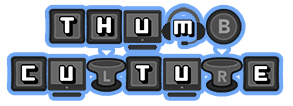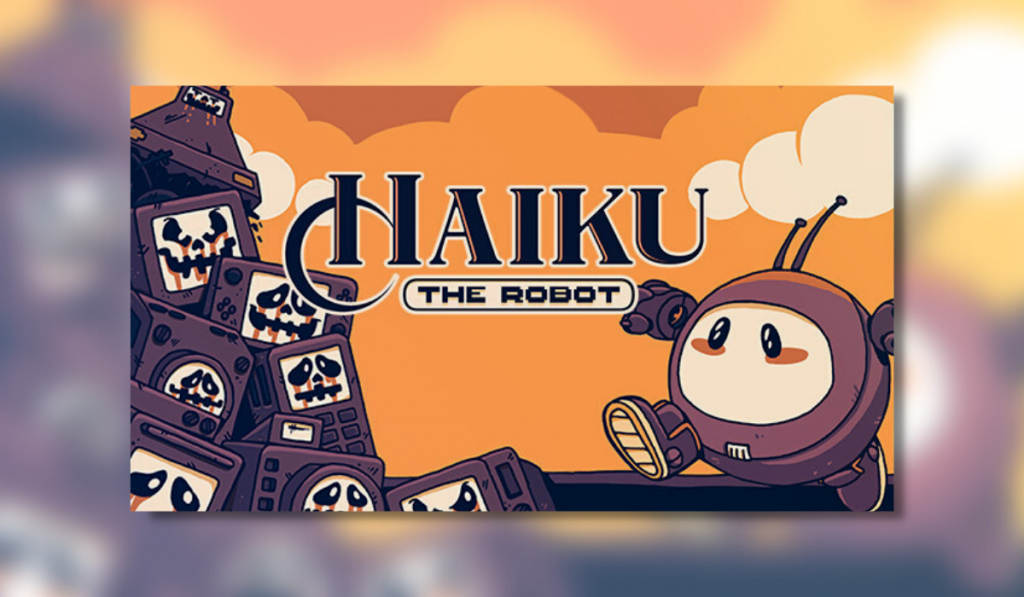
To teach himself the rhythm and structure of a great novel, legendary journalist Hunter S. Thompson once re-typed F. Scott Fitzgerald’s The Great Gatsby word for word. Playing Haiku, The Robot made me think something similar was going on, because the game’s resemblance to Hollow Knight is so overt that you could almost call it a replica—or, to put it more generously, a Hollow Knight expansion with a robot skin. The sense is that the game’s solo developer, James Morris, AKA Mister Morris Games, had no intention of hiding his influence.
You play as a little robot named Haiku, and as you explore the robotic world of Arcadia, divided up into branching paths like in any Metroid-vania, the echoes of Hollow Knight are frequent. The tech-based enemies have a direct insectoid parallel in Hollow Knight, with the same—or so similar they’re identical—attack patterns and sound effects. The bolts Haiku uses for currency have the same animations and the same aesthetic as Hollow Knight’s shell cases. I could go on, but in doing so I would give the wrong impression about my ultimate feelings about the game. I have some reservations about a lack of originality, but the Metroid-vania genre as a whole has its fair share of homages—Axiom Verge feels like classic Metroid, Bloodstained feels like Castlevania—and it might sound like I was complaining.
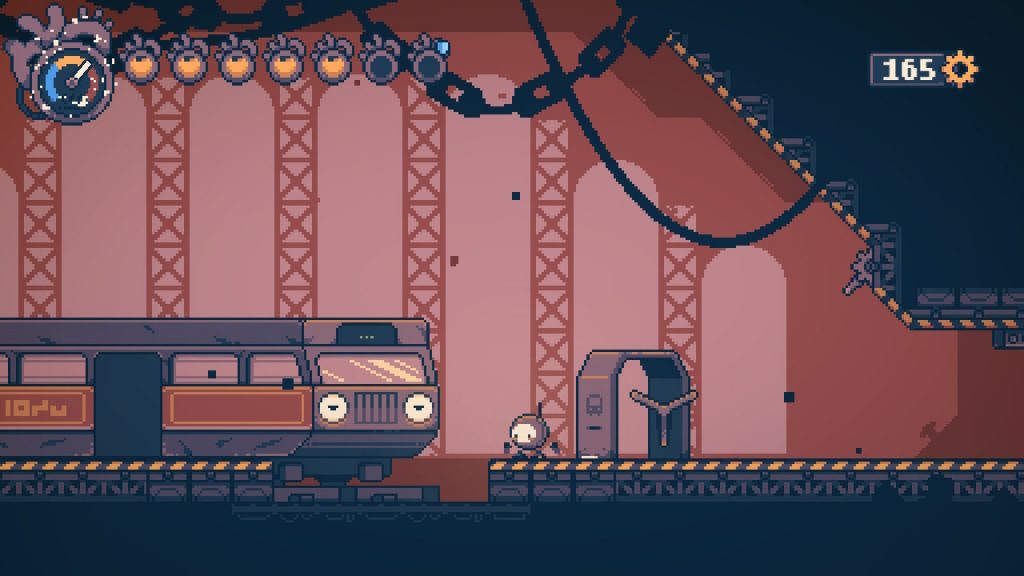
ROBOTS CAN BE KNIGHTS TOO
Love’s Labour
It’s the obvious love and passion that has gone into making the game that helps me look beyond these similarities and to acknowledge that Haiku is an enjoyable game in its own right. The bottom line is: traversing and battling through Arcadia is a lot of fun. The controls feel meticulously honed, making the platforming and combat satisfying and instinctive. Your attacks, which you expand through the genre-staple upgrade system, become varied enough to provide some room for mastery. Killing some enemies requires a very satisfying zen-like timing, moments that break up the pace and force you to engage your mind. Boss fights—a little easier than Hollow Knight’s, though still challenging—require a keen observation of attack patterns. All in all, progress through the game feels well-earnt.
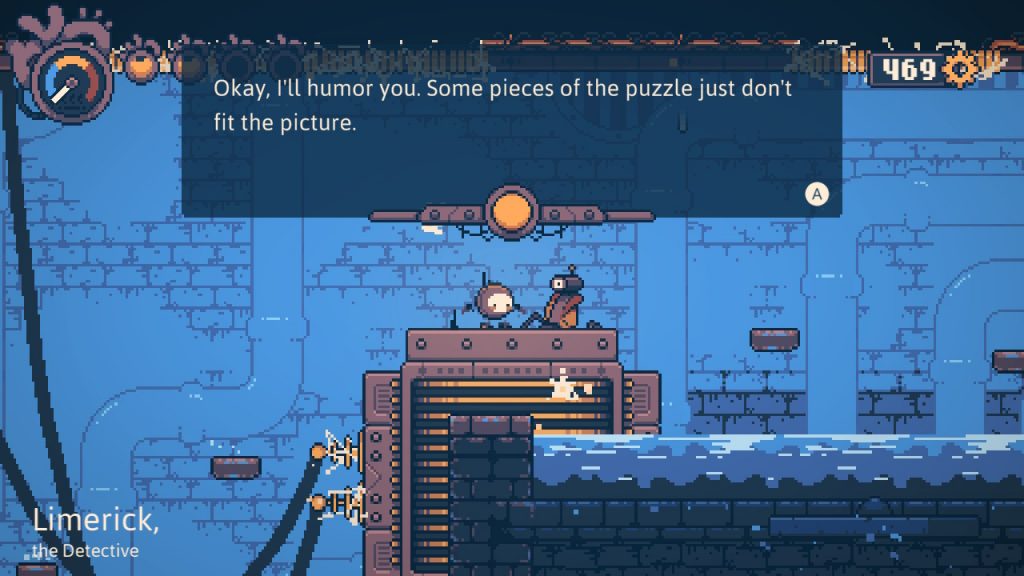
Compelling exploration is Metroid-vania bread and butter, and Haiku’s take is as effective as its peers’. Venturing out from save spots into the slowly-revealing map, I felt tense. You battle through challenging areas where each bit of damage uses up one of your health capsules—and you don’t have many to play with, especially at the beginning. You can heal yourself, but this is limited by the number of bolts you’ve collected from shrines and fallen enemies (ahem, like Hollow Knight’s soul-healing system). Your more powerful abilities and attacks are limited by the risk of overheating. Dying isn’t nearly as common or frustrating as it is in Hollow Knight, but when you finally come across an area full of NPCs, or that sought-after save spot, the sense of relief is palpable.
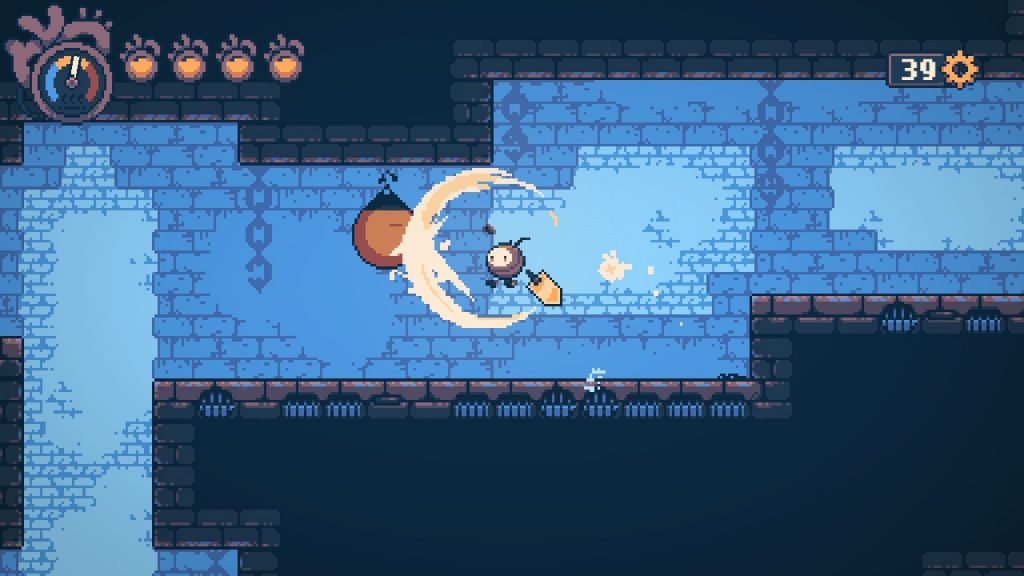
Atomic Pixels
Arcadia is a futuristic world decimated by a mysterious atomic explosion. The opening cinematic—lovingly animated in the same Game-Boy-style pixel art as the rest of the game—sets the tone well. As you explore, satisfying little details draw your eye: leaves drifting across the screen, water sprinklers, triggered by your movements, coming on and off, background fires raging, oil dripping from the platforms. The characters are well-animated, and the backgrounds created with love and attention to detail. The soundscape ties everything together within a mood-setting, atmospheric ambiance.
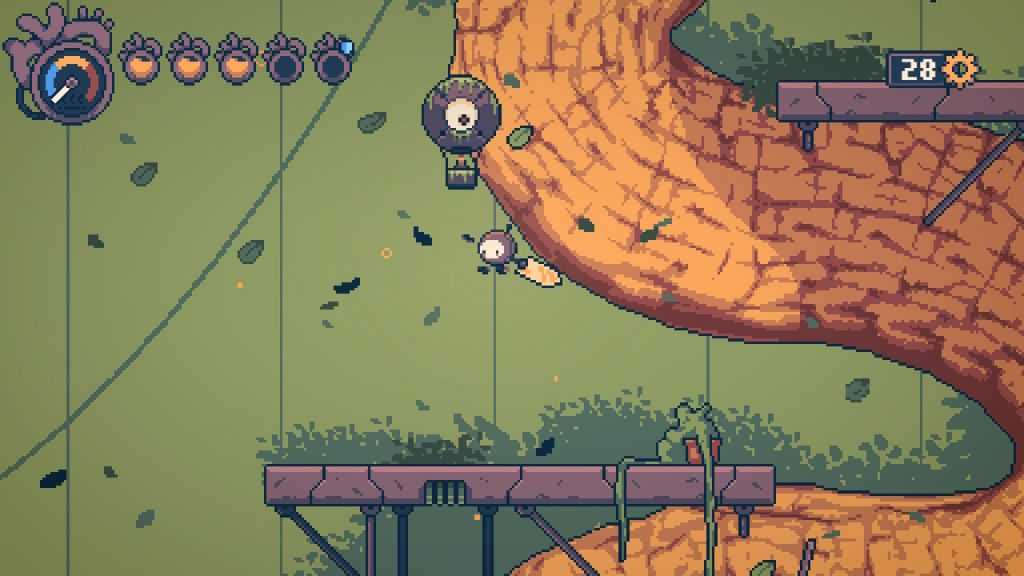
Final Thoughts
Haiku, The Robot wears its 8-hour runtime well, especially if you’re looking for a shorter, action-heavy, well-made experience. Once the bosses are all dispatched and the simple story is completed, finding the final few ability-expanding computer chips (direct Hollow Knight parallel: ability-expanding charms) may take another hour or so. Overall, Haiku, The Robot made me nostalgic for Team Cherry’s Hollow Knight in all the right ways. I’m not sure what Hunter S. Thompson did with his copy of The Great Gatsby—but Mr. Morris gets to count this game as a well-earnt win. It gets the Thumb Culture Gold Award.

Disclaimer: A code was received in order to write this review.
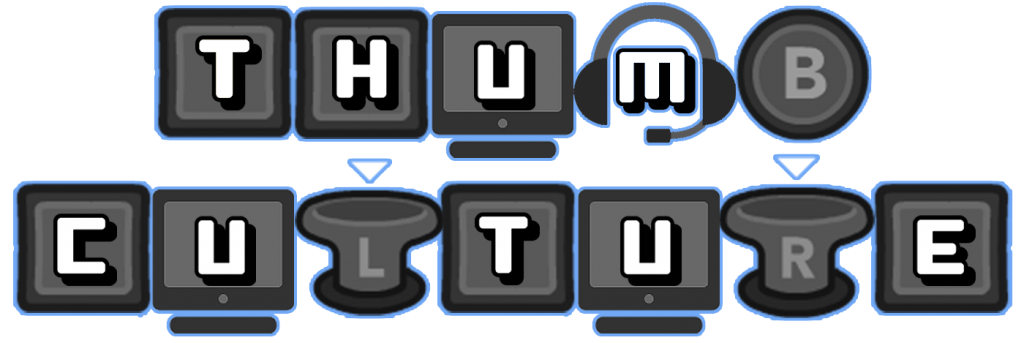
YouTube | Facebook | Twitter | Instagram | Discord | Podcast
[allkeyshop_widget_offers game=”110061″ template=”26″]
